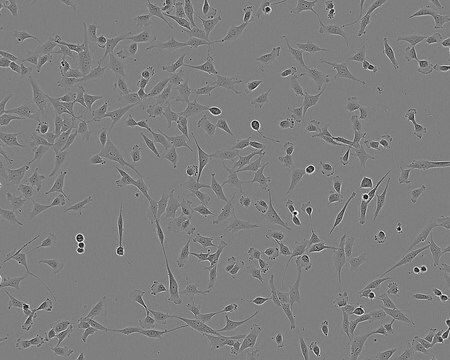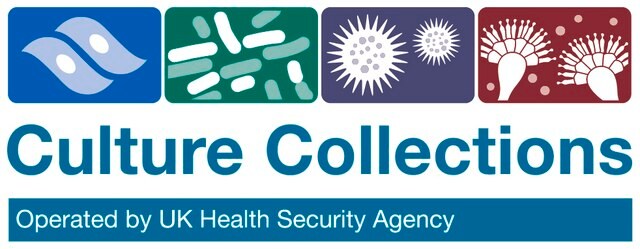PG-4
94102703, feline brain, Glial/astrocyte
Anmeldenzur Ansicht organisationsspezifischer und vertraglich vereinbarter Preise
Alle Fotos(1)
About This Item
UNSPSC-Code:
41106514
Empfohlene Produkte
product name
PG-4, 94102703
Biologische Quelle
feline brain
Wachstumsmodus
Adherent
Karyotyp
Not specified
Morphologie
Glial/astrocyte
Produkte
Not specified
Rezeptoren
Not specified
Methode(n)
cell culture | mammalian: suitable
Relevante Krankheit(en)
cancer
Versandbedingung
dry ice
Lagertemp.
−196°C
Ursprung der Zelllinie
Cat brain Moloney sarcoma virus-transformed
Beschreibung der Zelllinie
PG-4 was derived at NIH in 1980 from G355 cells by transformation with Moloney Murine sarcoma virus (M-MST) and subsequently cloned. Support the growth of simian sarcoma associated virus (SSAV); macaque virus; feline immunodeficiency virus (FeLV) A, B and C; feline RD-114; C retroviruses; murine xenotropic and munk cell focus-inducing virus (MCF).
Anwendung
Cells can be used to detect and assay type C retroviruses and are currently recommended by the FDA for the detection of replication competent retroviruses in gene therapy products and hybridomas producing reagents for human use.
PG-4 cells can be used to detect and assay type C retroviruses and are currently recommended by the FDA for the detection of replication competent retroviruses in gene therapy products and hybridomas producing reagents for human use.
Nährmedium
McCoy′s 5a + 2mM Glutamine + 10% Foetal Bovine Serum (FBS) (heat-inactivated).
Subkultur-Routine
Split sub-confluent cultures (70-80%) 1:3 to 1:6 i.e. seeding at 2-4x10,000 cells/cm2 using 0.25% trypsin or trypsin/EDTA; 5% CO2; 37°C.
Sonstige Hinweise
Additional freight & handling charges may be applicable for Asia-Pacific shipments. Please check with your local Customer Service representative for more information.
Analysenzertifikate (COA)
Suchen Sie nach Analysenzertifikate (COA), indem Sie die Lot-/Chargennummer des Produkts eingeben. Lot- und Chargennummern sind auf dem Produktetikett hinter den Wörtern ‘Lot’ oder ‘Batch’ (Lot oder Charge) zu finden.
Besitzen Sie dieses Produkt bereits?
In der Dokumentenbibliothek finden Sie die Dokumentation zu den Produkten, die Sie kürzlich erworben haben.
Unser Team von Wissenschaftlern verfügt über Erfahrung in allen Forschungsbereichen einschließlich Life Science, Materialwissenschaften, chemischer Synthese, Chromatographie, Analytik und vielen mehr..
Setzen Sie sich mit dem technischen Dienst in Verbindung.

